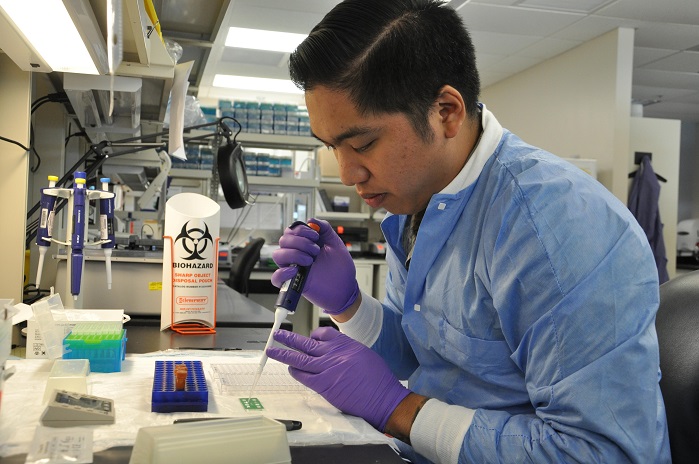A recent news story describing how scientists in China generated the first human-monkey chimeric embryos (unborn monkeys with human body parts)—a deliberate and unnatural crossing of species—sent shock waves through the world.
But this unethical experimentation on human embryos is not exclusive to China.
Scientists have now successfully grown baby mice in the lab, outside the natural womb. They are pushing to do the same with human babies. It’s not a horror movie yet, but it could be very soon.
Unborn mice embryos were grown in rotating lab bottles, outside the natural maternal environment, until halfway through gestation. They grew in bottles until they had a fully functioning heart and circulatory system, as well as other organs. Limbs and eyes were also forming.
Upon reaching optimal growth and living conditions for the tiny mice, the scientists explored a range of possible experiments. They genetically modified the embryonic mice, changing their DNA. Toxins were added to test teratogenic (deformity) effects.
In addition, researchers injected embryonic stem cells from a destroyed human embryo into the mouse embryos to make human-mouse “chimeras”—a hybrid species with both mouse and human parts, including hybrid brains. They were allowed to grow for 14 days, then killed.
But these experiments do not—and will not—stop here. The lead scientist of the “mouse in a bottle” research team is calling for human beings to be next. He is quoted in Technology Review saying, “I would advocate growing it [a human embryo] until day 40 and then disposing of it.”
REACH PRO-LIFE PEOPLE WORLDWIDE! Advertise with LifeNews to reach hundreds of thousands of pro-life readers every week. Contact us today.
Such thoughts and intentions are abhorrent. They set the stage for systematic exploitation of human beings. No human being should be considered disposable, brought into existence as a science experiment and then destroyed. Moreover, exploiting human beings for experimentation is unnecessary, as numerous ethical research avenues exist—avenues which do not involve the creation and vivisection of young humans.
Growing live human babies in bottles up to 40 days post-fertilization (more than five weeks after conception) brings them to what scientists call Carnegie stage 16, when the heart is fully beating. At this stage, the brain, limbs, eyes and ears are forming. Early reproductive cells are beginning to migrate to the developing reproductive organs.
Human “baby in a bottle” experiments are not happening yet, mostly because of the “14-day limit,” a rule not to grow human embryos beyond two weeks in the lab, that scientists worldwide have agreed upon. This limit—written into law in some countries, but only a guideline in others, including the U.S.—is insufficient to prevent the unethical creation of human embryos for experimentation. There have been increasing calls to remove the 14-day limit as scientists seek to experiment on nascent human life.
Coincidentally, in the very same issue of the journal Nature that featured the “mouse in a bottle,” two other research teams described the first complete model of the human embryo. The human embryos are called “blastoids” because they resemble the early blastocyst stage of a developing human being. Human embryos were made from cultured human cells and cell lines—a new type of human cloning. They are not the same as “babies in a bottle,” but they nonetheless prove that scientists are chafing at the starting line. They’re just waiting for the signal that they can rush forward once the 14-day rule is gone.
The International Society for Stem Cell Research (ISSCR) is perceived as the ethical authority in this arena. Ominously, it is scheduled to release new guidelines later this month concerning the new technology of stem-cell-based human embryo models.
If the ISSCR drops the 14-day rule, the horrendous practice of growing human babies in the lab will almost certainly proceed unchecked.
All research that creates, exploits, manipulates and destroys human beings at any stage of development is inherently wrong. Those practicing science must respect every human being—regardless of age, the manner in which he or she was created and whether he or she is inside or outside of the womb. A zero-day limit is the best rule for upholding the sanctity of every human life. State and federal policymakers should act now to ban these grotesque and unethical experiments.
LifeNews Note: Tara Sander Lee, Ph.D. is senior fellow and director of life sciences for the Charlotte Lozier Institute. David Prentice, Ph.D. is vice president and research director for the Charlotte Lozier Institute. Lila Rose is president and founder of Live Action.








